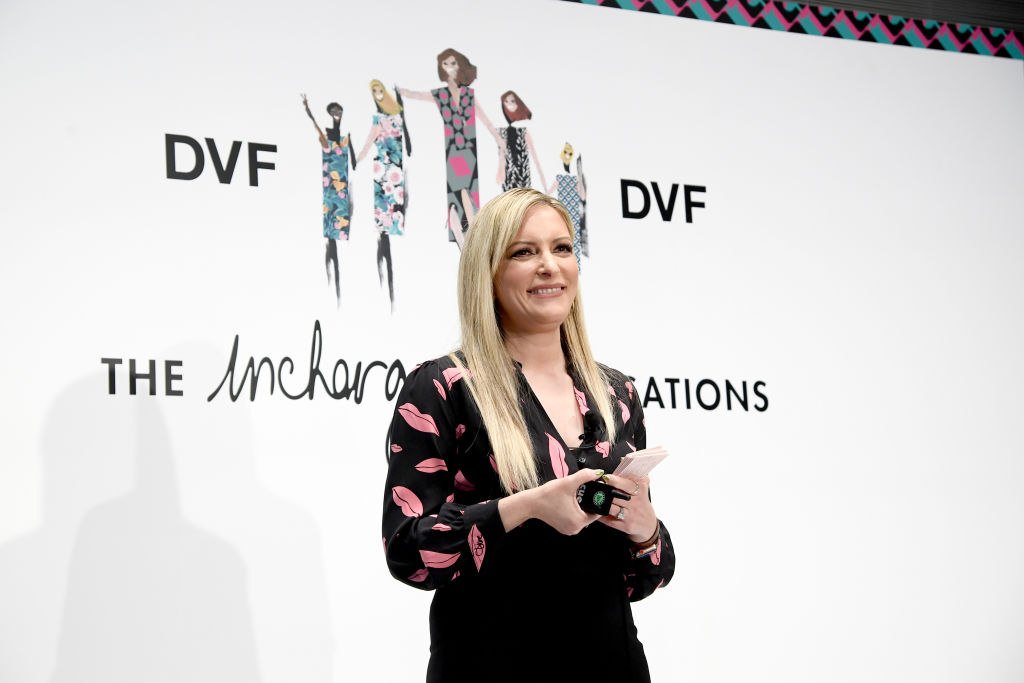Reese Witherspoon Shares Rules To Help Families Staying Home Divide Chores
Reese Witherspoon launched a new video series as part of YouTube’s #StayHome #WithMe campaign. Celebrities are encouraging viewers to to remain in self-isolation to slow the spread of the novel coronavirus (COVID-19). Witherspoon is tying her #ShineOnAtHome video series into her other Hello Sunshine lifestyle programs.

For her first episode of #ShineOnAtHome during the stay at home orders, Witherspoon interviewed an author whose book was part of Hello Sunshine’s Reese’s Book Club. Eve Rodsky wrote Fair Play, a book about dividing up chores in family settings. Now that spouses and families are confined together all day, with many parents trying to work from home, Witherspoon thought Rodsky’s rules would be especially relevant. She interviewed Rodsky.
Reese Witherspoon’s rules for her kids
Witherspoon introduced her #ShineOnAtHome series with her eight-year-old son Tennese James Toth. She asked him what rules he has to follow, and reiterated those rules to viewers.
“No balls in the house,” Witherspoon said. “Clean your body. Wash your hands”
Then she introduced Rodsky to Tennessee.
“Our friend Eve creates systems in homes so people don’t fight,” Witherspoon said.
Reese Witherspoon’s first question for Eve Rodsky
With Rodsky on the line, Witherspoon shared a question her friend inspired. “My girlfriend within the first three days sent me this list of rules that she has for her little kids,” Witherspoon said. “Then I asked, ‘What is the division of labor between you and your husband?’ and she said, ‘Oh, I didn’t make a list for that.’ I think every society has rules, right? Now your household.’
Rodsky had two rules for discussing chores with spouses.

“One, no feedback in the moment,” Rodsky said. “Why is that sponge in the sink? As much as you want to give that feedback in the moment, write it down. Come back when emotion is low and cognition is high. Start with your why. [My husband] Seth and I decided garbage will go out once a day. He’s putting it on his work calendar like it’s a work appointment as long as I never mention the word garbage ever again.”
Another daily routine to survive self-isolation
Witherspoon and Rodsky agreed that these rules need to be reiterated daily. The situation is too fraught right now to let things linger.
“Keep checking in and every week, sometimes the rules have to change or the cards have to shift,” Witherspoon said

Rodsky added that it’s okay if you don’t get the division of labor right the first time. It can and should be a daily evolving dynamic.
“There’s no one way to do a pandemic,” Rodsky said. “It has to feel fair to both people. You get that through constantly communicating. There are thousands of people who say that the nightly check0in is saving them.”
Rodsky reminded viewers to keep in touch with people outside their homes too.
“Burn guilt and shame,” Rodsky said. “Grab your spiritual friend, someone that can wake you up or be with you in a time of crisis and you hold onto that through Zoom or Facetime.”
These are the most important chores to focus on
Rodsky said that in her research she’s discovered 13 chores that are the most common sources of friction in couples. If you nail those down, you can let everything else go.
“For the uncompliant partner, there is a dirty dozen,” Rodsky said. “Laundry, groceries, meals, home supplies, emergency planning, tidying up, cleaning, dishes, social media and social interactions with kids, watching kids, homework/homeschool, discipline and the baker’s dozen 13 was garbage. Take everything else off your plate if you have a noncompliant partner and just focus on the dirty dozen.”
Witherspoon hopes the coronavirus crisis can motivate couples to have this important conversation.
“These are the 13 things: how are we going to get them done?” Witherspoon said. “Even if you’ve never had that conversation with your partner before, now is the time to have it.”
Take time to appreciate the little things
Rodsky’s final piece of advice was to focus on the moments of joy throughout the day. They need not be major victories.
“This 95-year-old man from a book I’m reading says his greatest pleasure is looking at his citrus tree in his backyard,” Rodsky said. “I don’t want us to wait ‘til 95 to realize that ordinary moments can breed happiness. I think that’s the beauty and the silver lining of this time. Take time to find happiness in those ordinary moments.”


